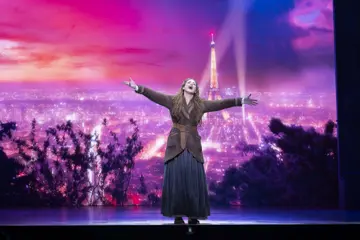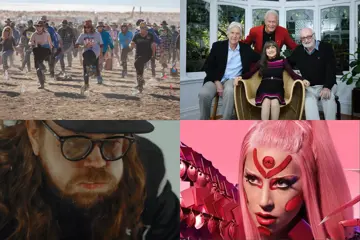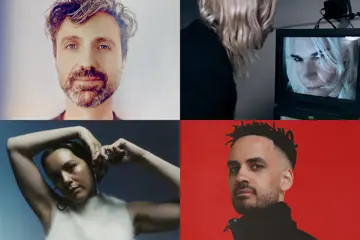American jazz singer Madeleine Peyroux had yet to grace the earth when Ray Charles released his album Modern Sounds In Country & Western Music – Volume 1 in the northern summer of 1962. In 2013, the genre-bending album and its follow-up, Volume 2, undergo a masterful reinterpretation in Peyroux's The Blue Room, and the songs take on a more personal perspective for the singer.
“It's been 50 years, almost to the day, since Ray Charles made those recordings and I feel like, when I sing these songs, it has become a question of trying to understand what women feel in their roles and in their humanity, and the civil rights awareness. The definition of the word 'love', the definition of freedom. The word 'freedom' comes up a lot in all his songs, and I find myself singing that word quite a bit. I think it does raise the same types of questions [as those in Charles' time].”
Where Charles sang highly melodic numbers such as I Love You So Much It Hurts and Take These Chains with soaring violins, a back-up choir and tinkling bells, Peyroux strips them down with the minimalism of Vince Mendoza's string arrangements and the singular focus of her voice. She sees the protagonist's voice in The Blue Room as “wide, panoramic”, concealing “a strange cinematic attitude towards the landscape underneath the solitary voice”.
“How much action can be happening behind that voice, or not happening? I think it's very meditative,” she muses. “My hope is that people will come away hearing their own thoughts.”
Unlike Charles however, Peyroux does not make any claims to genre crossovers in her album. “As far as the idea of crossing over in styles, not everybody might see how obvious or blatant it is,” she offers. “We try to do something more subtle – showing how music has been able to morph in the 21st century style of modernism, which is to throw everything in a pot. There's so much information coming at us all the time now that [listening habits have] changed. So for me, the album is the young woman's voice singing the lyrics that were made famous 50 years ago and seeing what happens when you do that. I find that quite interesting.”
Don't miss a beat with our FREE daily newsletter
The Blue Room is only another step in her long and highly acclaimed career, beginning when she was 15 years old in the Latin Quarter in Paris. “I have been able to step back and look at the art of songs again and in a new way,” Peyroux admits, “recognising how arrangements can change everything but that the lyrics of the song are all the more important to me. To be honest, I want to continue writing now that we've made this record. I think I'm a much more accomplished singer and interpreting artist than anything else, but I feel excited and inspired by the opportunity to sit and write.”
Peyroux has been performing the songs for over a year now. The singer – whose distinctively haunting, smoky vocals earned her frequent comparisons to Billie Holiday and took her from busking in the streets of Paris to touring main concert halls around the world – will bring The Blue Room tour Down Under early next year. It will be her third time here, the latest of which was in 2010 when she featured as part of a triple bill with Diana Krall and Melody Gardot. The Australian leg of her tour will feature three local string players in addition to her substantial ensemble from New York City.
Audiences can look forward to “similar arrangements that [she's] been performing in other shows, which feature strings to try to tie it all together”. “You'll find that we've got a lot of sad songs but we enjoy playing them,” she continues, “and we enjoy sharing them. And the overall experience is supposed to be quite contained. I think people will come away feeling like they have seen a show and they have been told a lot of sad stories.”
Despite this being her first participation in Port Fairy Folk Festival, Peyroux is “very excited and looking very much forward” to the opportunity to “gather and mingle with like-minded people and other artists who appreciate music”. “It's never the same every night. I think the audience is a real big part of what [singing] those words mean, and for me that's why I love this show perhaps as much, or more, than other shows I've done.”















